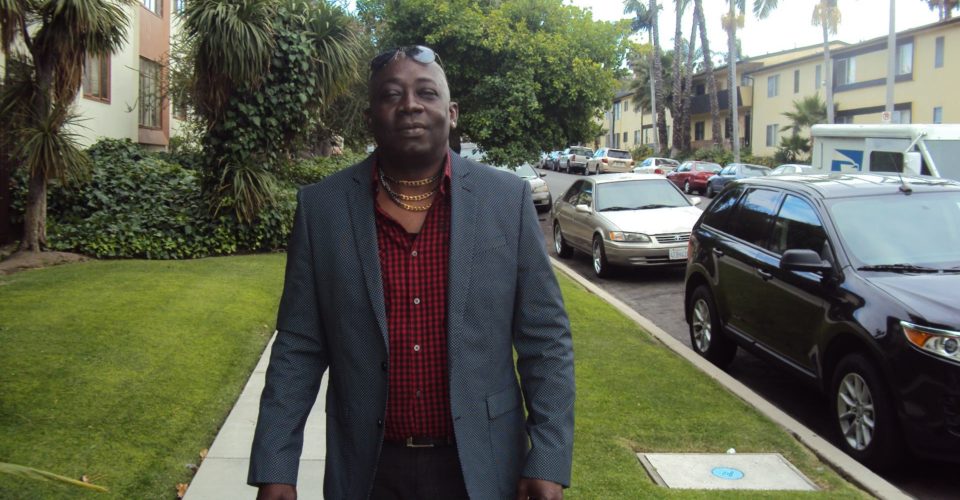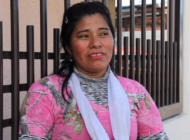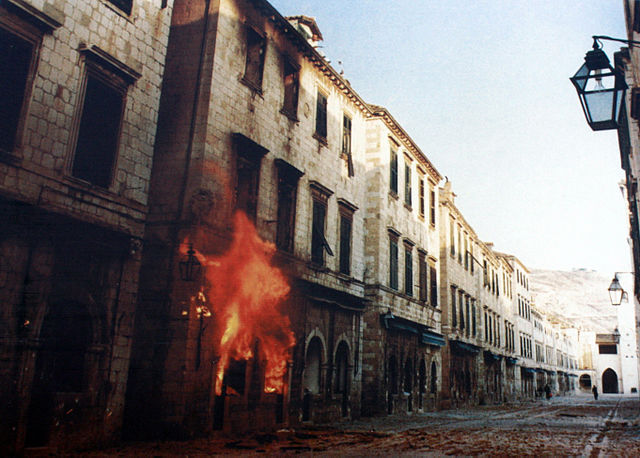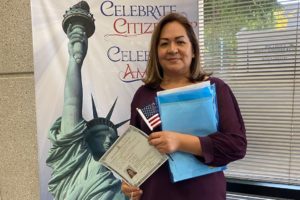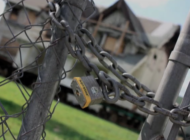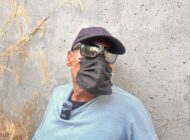In July 2011, the young computer technician took off from Abidjan, Ivory Coast, to Los Angeles, California. He did not know anybody there.
By BEATRICE EHOUMAN ANOH
EL NUEVO SOL
“The luckiest ones will manage to flee the country. The less fortunate will perish,” said Laurent Gbagbo, the former president of the Ivory Coast in West Africa, about the post-election crisis of October 2010, which ended with more than 3,000 people killed and Gbagbo arrested and sent to The Hague.
After that statement on April 11, 2011, a young, 40-year-old Computer Technician, Frederic Gohou decided overnight to abandon everything, his family, friends, and career in a quest of a safer life for his family. Gohou was taken aback by the political situation. Yet, black men or I should say, “Black boys are made, of flesh, not clay. Black boys have blood, and bone, and flesh and feelings. Black boys are alive with hopes and dreams,” as described in Thirteen Ways of Looking at a Black Boy, by Tony Medina.
It’s a fantastic book of profiles of Black men. Gohou had a business selling computer equipment, repairing and building computers. “We did not know when the stability would return after three months. I had to go look for safer heaven for the sake of my family,” he said. Gohou was a fervent supporter of the Ivorian Popular Front political party (FPI) and President Laurent Gbagbo. Gohou left the country a few months later after the new government reopened the land and airport borders. The new head of state Alassanne Ouatarra was determined to chase down and jail all FPI supporters.
Gohou’s life was still at stake at any moment. He did not speak English fluently. He came once to America, in New York precisely for business two years prior. As such, he obtained a 10-years visa. So, when he decided to leave his country, his only obstacle was the plane ticket.
He had for ambition to return to New York. But faith decided otherwise. When he went to the travel agency, all planes in direction of New York were fully booked. His only option was Los Angeles. He did not think twice. He booked his ticket event though he did not know anyone on the West Coast.
In July 2011, the young computer technician took off from Abidjan, the capital city, to Los Angeles, California. He did not know anybody in Los Angeles. The only lifeline he had was a phone number from an acquaintance of his friends from New York. He was supposed to call once he lands, at LAX airport. He had a 16-hour flight. Gohou had all the time to think about his new venture. And he was going to change his status from tourist to refugee. Before that, he never thought of leaving his native country. He was happy there with this family.
When the immigration officer addressed him, Gohou put his A-game on. He introduced himself in his broken English. He said that the immigration officer asked him the purpose of his visit.
“I, Frederic Gohou come to meet the community for political reasons,” he said with a big smile. The officer looked at him and responded: “OK! Welcome to America”. And give him his passport. Gohou said with comedy that he dressed like a big boss or a prince. He wore an expensive new suit. He wore a pricey perfume, “Y” from Yves Saint Laurent, that invades the atmosphere with a pleasant smell as soon as he entered a location. He felt handsome. “Now, he does not even remember the last time he went to the barber,” he said.
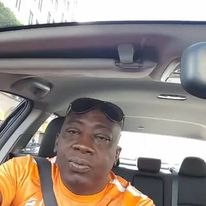 As a believer, he thinks that God was by his side that day. He picked up his heavy blue suitcase and left. Then, Gohou went to the information desk to request a phone call. He remembers that the information desk lady was very nice. He didn’t speak English very well. He only said French, French. She understood that he was a French speaker. She dialed the number and handed him the phone. Fortunately, his contact picked up. He was also a 30-years olds fellow. An Ivorian man called Arsen Doh. He worked as a security guard in a security company. They exchanged briefly. Gohou said that Doh asked him to take a yellow cab to meet him at home. Gohou wrote the address down. He said ok. He handed the phone back to the lady and thanked her.
As a believer, he thinks that God was by his side that day. He picked up his heavy blue suitcase and left. Then, Gohou went to the information desk to request a phone call. He remembers that the information desk lady was very nice. He didn’t speak English very well. He only said French, French. She understood that he was a French speaker. She dialed the number and handed him the phone. Fortunately, his contact picked up. He was also a 30-years olds fellow. An Ivorian man called Arsen Doh. He worked as a security guard in a security company. They exchanged briefly. Gohou said that Doh asked him to take a yellow cab to meet him at home. Gohou wrote the address down. He said ok. He handed the phone back to the lady and thanked her.
He managed to find a taxi. Once in the cab, he handed the address to the driver who dropped him off downtown on Wilshire boulevard. Gohou said he was thankful because his arrival in Los Angeles was very smooth compared to his apprehensions. “What about if Doh never responded to the call? “I did not have a personal cell phone. That would have been another headache,” he said. He had very little money, not even enough for a hotel room. It was getting late. His new friend and himself arrived at home around 7.00 pm. He was starving and tired but optimistic. He said that his friend took care of him properly. Doh was single and lived in a small studio apartment in Koreatown. Although Gohou had a ten-year visa in his passport, he could not afford any mistakes. As a tourist, he could only stay for only six months. After that, he had to leave America.
With the help of the Ivorian community, one month after his arrival, he went online and applied for asylum. The Lutheran Immigration and Refuge Service website says that an asylum seeker is someone who is seeking international protection from dangers in his or her home country. However, asylum seekers must apply for protection in the country of destination. In other words, they must arrive at or cross a border in order to apply. It is everyone’s legal right to seek asylum, according to the signatory to the 1967 United Nations Protocol, and through U.S. immigration law, the United States has legal obligations to provide protection to those who qualify. If their application is ultimately accepted, the asylum seeker receives asylee status granting them relief from deportation and the right to work legally in the U.S., says the Lutheran Immigration and Refugee Services, (LIRS).
They report that thousands of migrants, asylum seekers, and refugees make the incredibly difficult decision to leave their countries in search of safety and better lives every day. Currently, there are nearly 80 million men, women, and children fleeing war, persecution, and political turmoil. A refugee is a person who has fled their country of origin and is unable or unwilling to return because of a well-founded fear of being persecuted because of their race, religion, nationality, membership of a particular social group, or political opinion. Once they have fled their home, they must apply for refugee status with an official entity, such as a government or the United Nations Refugee Agency, which determines whether a person meets the definition of a refugee, based on well-founded fear.
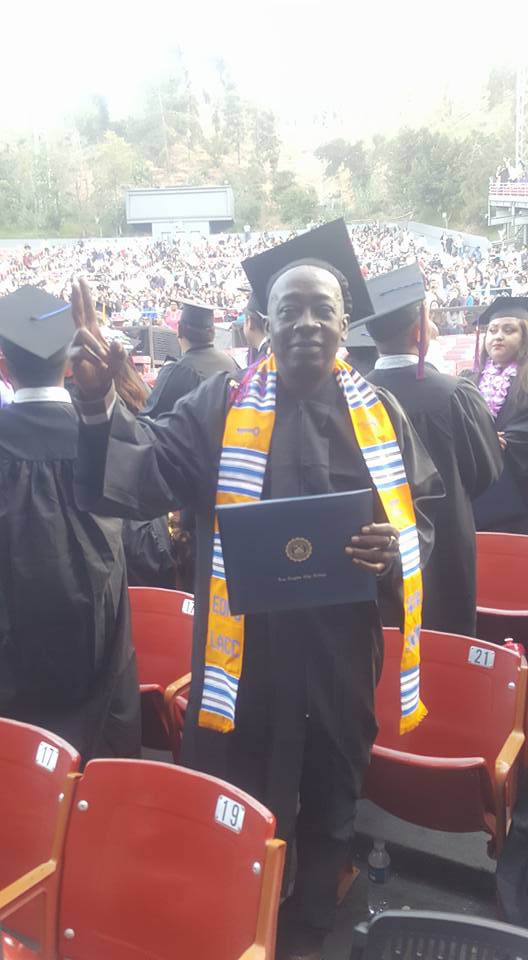 The process of obtaining refugee status can last many years, forcing many applicants to wait abroad in refugee camps with dangerous living conditions. They are not permitted to enter their destination country until their application has been accepted and they have been cleared for travel. Once the refugees resettled in the U.S. they immediately have certain rights and access to assistance, such as loans for travel to the U.S., cultural orientation, eligibility for medical and cash assistance, through Nonprofit support, such as LIRS. Caseworkers help them navigate social services, identify safe housing, and learn English.
The process of obtaining refugee status can last many years, forcing many applicants to wait abroad in refugee camps with dangerous living conditions. They are not permitted to enter their destination country until their application has been accepted and they have been cleared for travel. Once the refugees resettled in the U.S. they immediately have certain rights and access to assistance, such as loans for travel to the U.S., cultural orientation, eligibility for medical and cash assistance, through Nonprofit support, such as LIRS. Caseworkers help them navigate social services, identify safe housing, and learn English.
Fortunately for Gohou, the community was very active in finding him a job as a security agent. But, he said, he took advantage of all these services for a short period through the department of social services (DPSS) in Los Angeles. The assistance stopped as soon as he declared his wages. In the meantime, Gohou had already registered at the Los Angeles City College (LACC). It is a public community college located on Vermont Avenue south of Santa Monica Boulevard to learn English as a second language and earn an Associate Degree in health science.
There, he found the Dream Resource Center. Carolina Yernazian is the counselor/ coordinator for the past three years (2019). Yernasian said the center provides many resources to support undocumented students to survive and thrive in all aspects of their lives. She reviews residency requirements for undocumented students who attended the California high school. In addition, the center offers free legal services for other undocumented students, staff, and faculty members through the State of California. It works with Carecen, a nonprofit organization that provides immigration services.
The center offers mental help support with a therapist in a group setting. “The therapist is also an undocumented social worker,” said Yernasian. It helps the students to open up. Yernasian lived similar struggles. She says the Los Angeles district and LACC President, Dr. Mary Gallagher have always been very supportive of the dream center program, and that is why it has grown exponentially. Dr. Gallagher wants the community to understand that LACC is there for them. “LACC has always been a place for immigrants. If people are undocumented in our area, we want them to feel very, very comfortable coming to LA City College. If the dream center cannot assist them, we will make it a priority to refer anyone to the proper service they need. Undocumented or not, Los Angeles City College wants to help everybody in the Los Angeles Area to improve their lives,” she said.
Gohou’s case was quickly resolved because the aftermath of the 2010 election in Ivory Coast was still on the news and easily verifiable. A few months later, he was approved as a refugee. He went for an interview at the USCIS Asylum Office, Anaheim.
Then, he got fingerprinted free of charge at the livescan office on Wilshire Boulevard, Los Angeles, CA. He received a working permit a few weeks later, followed by a green card shortly after. Today, Gohou has successfully settled his immigration status from refugee to citizen. He speaks English. He has an apartment. But, he also suffered a severe stroke. It has disabled him from the right side of his body and left him with a speech impediment two years ago. Today, Gohou has recovered 99-percent of it. He was working two jobs to achieve his American dream rapidly. He lives alone and is unemployed. His next step is to file for his family members still abroad to join him in America.
Tags: Frederic Gohou Ivory Coast LACC refugee






